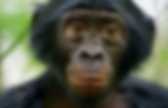

Answering 6Mk questions. Assessment for learning - Research summaries. The effective promotion of assessment for learning requires teachers to recognise that feedback is a two-way process.
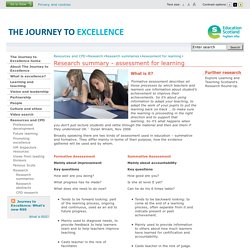
Teachers not only need to find ways to give more effective feedback to learners, they must also find ways of receiving better feedback from learners. This points to a number of practical areas for development. Quality of classroom dialogue Receiving better feedback from learners about what they have understood or can do, and the strategies they are using, is an essential part of good teaching. Getting inside a learner’s head to clarify what learning has taken place, to identify what learning difficulties are being experienced and to introduce future tasks, is one of the biggest challenges for classroom teachers.
The way that they ask questions;the way that they respond to pupils;classroom routines; andthe nature of the tasks and activities that learners undertake. Teachers often find that quite small changes can make a significant difference. Timely, focused feedback. Marking. Developing Literacy in Science. So, first day of the summer holiday and I’m in a conference suite above a museum on a training course.
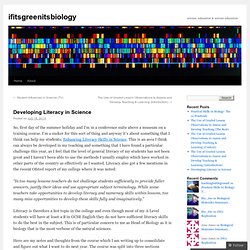
I’m a sucker for this sort of thing and anyway it’s about something that I think can help my students; Enhancing Literacy Skills in Science. This is an area I think can always be developed in my teaching and something that I have found a particular challenge this year, as I feel that the level of general literacy of my students has not been great and I haven’t been able to use the methods I usually employ which have worked in other parts of the country as effectively as I wanted. Literacy also got a few mentions in the recent Ofsted report of my college where it was noted: “In too many lessons teachers do not challenge students sufficiently to provide fuller answers, justify their ideas and use appropriate subject terminology. Here are my notes and thoughts from the course which I am writing up to consolidate and figure out what I want to do next year. Developing Talk. Science Literacy Support Placemats.
Science Literacy Support Placemats. 1 – 2 – 3 – Word Cloud! Word Clouds (wordle to most) can be a dynamic tool for visualizing text and for presenting a group’s thinking.
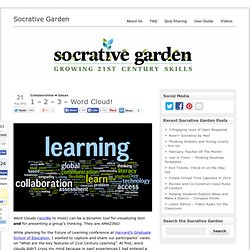
They are AMAZING! While planning for the Future of Learning conference at Harvard’s Graduate School of Education, I wanted to capture and share our participants’ views on “What are the key features of 21st Century Learning”. At first, word clouds didn’t cross my mind because in past experiences I had entered a historical speech, lecture notes or asynchronously generated google docs.
All these use cases would be ineffective for our needs. But then it dawned on me, Socrative could aggregate our real-time responses. Here’s the system. 9 Word Cloud Generators That Aren't Wordle. The use of word clouds in the classroom is a powerful way to really get through to visual learners.
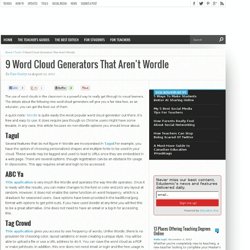
The details about the following nine word cloud generators will give you a fair idea how, as an educator, you can get the best out of them. A quick note: Wordle is quite easily the most popular word cloud generator out there. It’s free and easy to use. It does require Java though so Chrome users might have some trouble. Developing Literacy in Science. Developing Literacy in Science. Build Literacy Skills with Wordle. I've always been interested in quantitative displays of information.
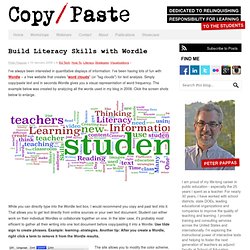
I've been having lots of fun with Wordle – a free website that creates "word clouds" (or "tag clouds") for text analysis. Simply copy/paste text and in seconds Wordle gives you a visual representation of word frequency. The example below was created by analyzing all the words used in my blog in 2008. Click the screen shots below to enlarge. While you can directly type into the Wordle text box, I would recommend you copy and past text into it. The site allows you to modify the color scheme, font, alignment and even set the maximum number of words to include in the analysis (example top 100 words, top 50 words, etc) For inspiration on layout see these Wordle samples at Flickr Wordle output – If you PDF generating software, you can "print" a Wordle to a PDF file. So how could your students use Wordle?
I've been collaborating with fellow educators on a Google Doc guide to using Wordle in the classroom Trackback URL. Words to use for talking about Art. …and ALL teachers teach literacy!
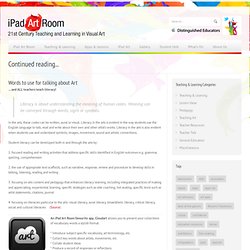
Literacy is about understanding the meaning of human codes. Meaning can be conveyed through words, signs or symbols. In the arts, these codes can be written, aural or visual. Literacy in the arts is evident in the way students use the English language to talk, read and write about their own and other artist’s works. Literacy in the arts is also evident when students use and understand symbols, images, movement, sound and artistic conventions. Student literacy can be developed both in and through the arts by: 1. focused reading and writing activities that address specific skills identified in English outcomes e.g. grammar, spelling, comprehension 2. the use of appropriate text scaffolds, such as narrative, response, review and procedure to develop skills in talking, listening, reading and writing.
Www.loreto.herts.sch.uk/PDFs/Policy Docs/Literacy Policy May 2011.pdf. Www.saintspeterandpaul.halton.sch.uk/Science marking and work outline.pdf. Www.science-interactive.co.uk/website content 07/handbook policies/science handbook...literacy policy.pdf. University of Chester Academy Northwich. Science department Literacy Policy The following should now be in place across all laboratories: · The Literacy displays and key words in all classrooms. · The identification of key words at the start of units of work · The correction of subject specific words · Key word activities for starter/plenary sessions in lessons · Appropriate presentation of teacher generated resources – and the readability of reading material. · Opportunities to develop Literacy through speaking and listening.
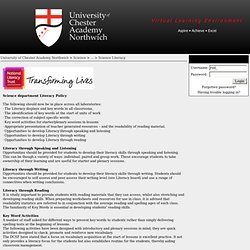
Digitaltoolbox - Literacy in Science. Skip to main content Create interactive lessons using any digital content including wikis with our free sister product TES Teach.
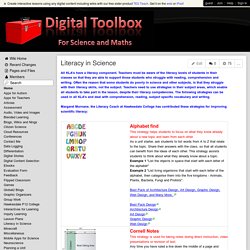
Get it on the web or iPad! Guest Join | Help | Sign In digitaltoolbox Home. Digitaltoolbox - Literacy in Science.